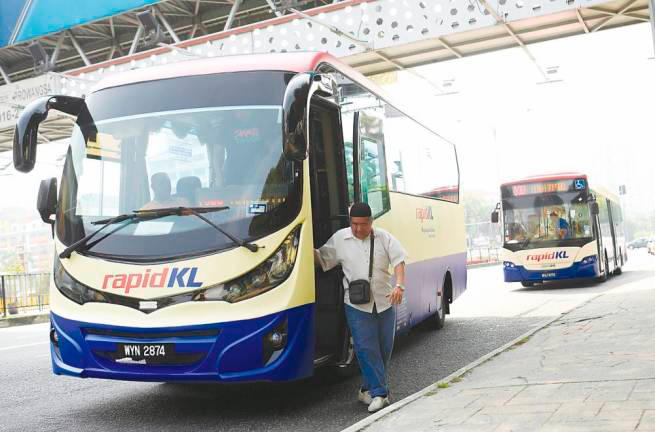PETALING JAYA: Transit Malaysia, a group that advocates for better public transportation, has criticised RapidKL for its decision to terminate its services for 13 routes in the Klang Valley.
It said if buses stop plying those routes, it would leave many commuters in the lurch.
“For instance, if the service for Route 754 from Seksyen 2 in Shah Alam to UiTM in Puncak Perdana is terminated, students will have to pay up to RM20 to get to college,” it said in a statement yesterday.
“That would be five times more than the bus fare,” Transit Malaysia said.
With the bus service for those routes terminated, more commuters will be forced to drive, leading to traffic congestion, it added.
Transit Malaysia estimated that the 13 routes added up to about 190km. “It will separate neighbourhoods and districts from the city centre as public transportation becomes less easily available, less reliable and less frequent.”
Apart from Route 754, the service for Route 852 from Titiwangsa LRT to Solaris Dutamas is another essential route also to be terminated.
Transit Malaysia pointed out that students and underpaid essential services workers will make up the majority of those having to bear the burden of overpriced transportation if these cost-cutting measures continue.
The group was surprised that RapidKL cited low ridership as a reason for terminating the services along those routes.
According to RapidKL, this was caused by the conditional movement control order (CMCO) that was imposed in the Klang Valley.
Transit Malaysia said the CMCO is necessary to prevent the spread of Covid-19.
“We did not expect it to justify terminating the services,” it said.
To RapidKL’s other reason of overlapping routes, the group suggested that it “untangle” the overlaps rather than terminate the services for an entire route.
“Terminating services will lead to more passengers opting for alternative solutions. It is also ironic that RapidKL has 30 to 40 passengers in a bus. This would make physical distancing difficult.”
It also criticised RapidKL for the lack of public consultation before making the decision.
“Public transport users deserve better. We cannot improve public transportation without improving policy and governance. We also cannot improve public transportation if the financial and structural models favour cost-cutting over quality of service, which is a mediocre compromise,” it added.










